On May 31, the movie channel broadcast "The Piano of Steel" focusing on Northeast industry.
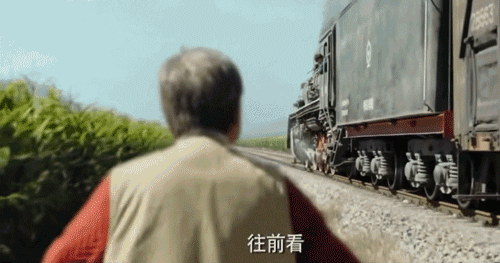
Special feature of 1905 film network "Look ahead, don’t look back!"
At the end of the recent hit TV series, Wang Xiang shouted this sentence to his young self. The story is based on the laid-off tide of workers in state-owned enterprises in Northeast China in 1997 and 1998, and traces an unsolved case of dismemberment.
To some extent, the core of The Long Season is not to seek the truth, but the end of the northeast state-owned factory "Hua Gang", which is people’s inner self-salvation under the reform of state-owned enterprises.
Elegy of the Times: Frequent Literary Works in Northeast Industry
The first furnace of molten steel, the first car and the first jet plane & HELIP; … As the "eldest son of the Republic", Northeast China has strongly supported the national construction, is the birthplace of heavy industry in New China, and is also the source of pride and pride in the hearts of every Northeast person.
However, once brilliant, it suffered from the pain of economic system reform. Since the 1990s, the manufacturing industry in Northeast China has been laid off, and millions of workers in state-owned enterprises have lost their jobs.
The "wave of laid-off state-owned enterprises in Northeast China", like a sealed memory, is also regarded as a fertile land for literature and art.
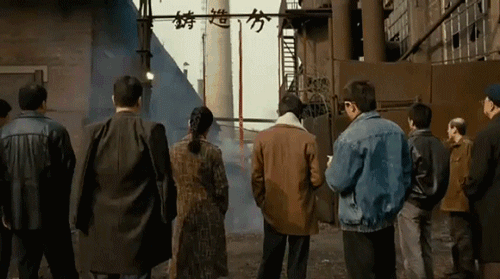
From the film Tiexi District to the song Mohe Ballroom, stories related to the end of Northeast industry appear more and more frequently in literary and artistic works. Are they aftertaste, helplessness or regret?
At 15:56 on May 31, the film channel broadcast focused on this period. After the state-owned enterprise was restructured, the film vividly portrayed the dilemma and stubbornness of laid-off workers.
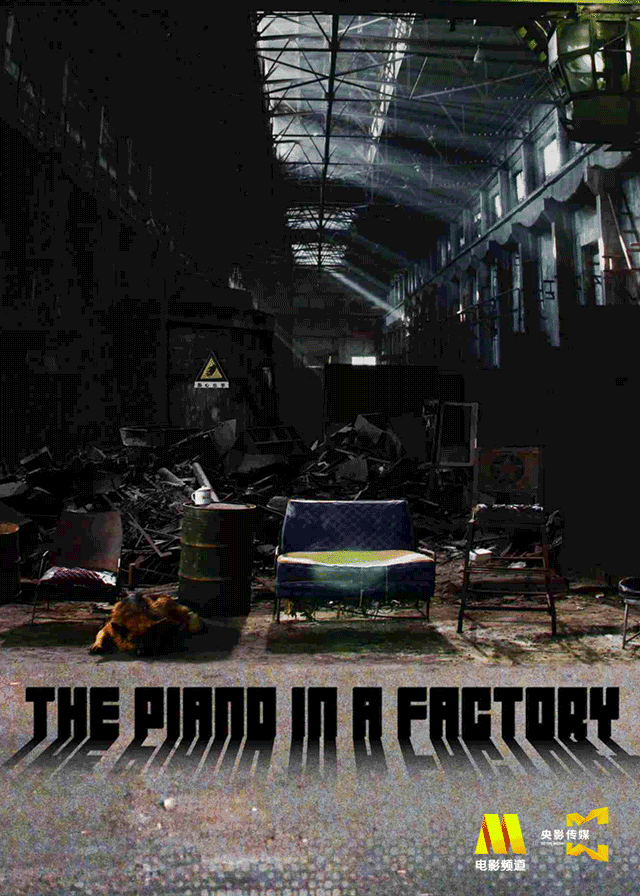
The film star starred in the film for zero pay and generously became the "producer", because it refused the invitation of "Hidden". He said that even if it could not be released after filming, he would keep the collection because the film sang the elegy of the times.
Industry and Romance Hard-core Workers Create "Steel Piano"
In the early 1990s, in a heavy industrial city in Northeast China, Chen Guilin (Wang Qianyuan), a former steel mill worker, was laid off and formed a band with his girlfriend Shu Xian (Amanda) and other workers to make ends meet.
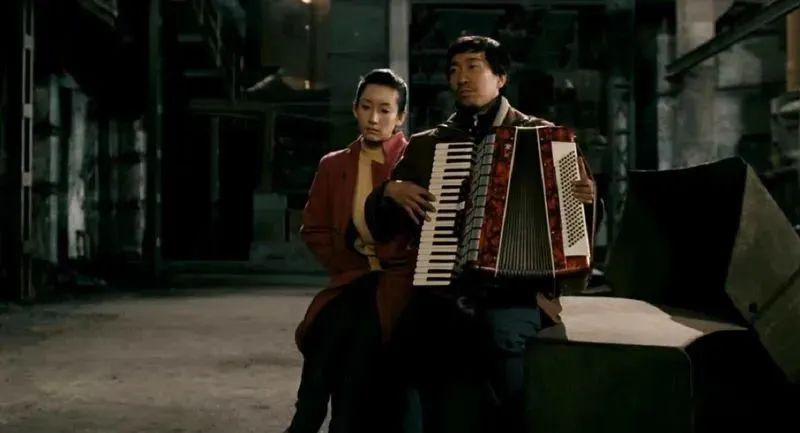
Chen Guilin’s wife, Xiao Ju, returned home after leaving home, not only to divorce him, but also to fight for the custody of her daughter Xiaoyuan. Xiaoyuan bluntly said that whoever bought her a piano would follow her.
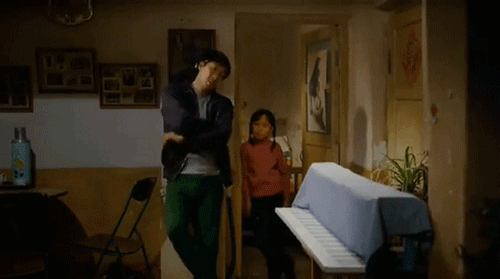
After making a "paper piano" — Borrow money to buy a piano — After stealing the piano in a group, Chen Guilin came up with the idea of making a piano.
What’s more exciting is that laid-off workers are willing to help. They all have their own strengths, as if they had returned to those years in the factory, immersed in the tacit understanding that they had worked hard together, and realized the unspeakable sense of accomplishment.
Chen Guilin knows that the completion of the steel piano is not only to retain the daughter, but also to prove their value and dignity.
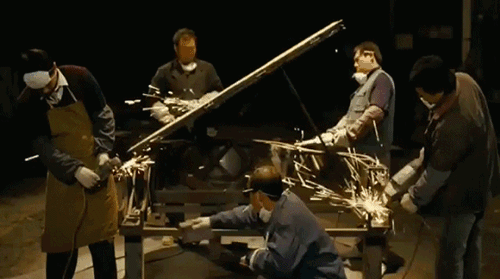
With the joint efforts of everyone, the piano was completed. Xiaoyuan sat in front of the piano and began to play, and an era ended in the melodious sound of the piano.
The piano is heavy and rough, and under the rough industrial metal texture, every note played is not very accurate, but it can still flow with warmth and harmony.
This is the hardness and softness of laid-off workers in that era, and it is also a kind of romance beyond material things.

Narration and Composition: Formation of the Concept of "Homestate Isomorphism"
The film sets two narrative clues, the main line is to complete the piano and leave the daughter, and the secondary line is the fate of two chimneys.
At the beginning of the film, the chimney of the cooling tower is erected above the mourning hall. The traditional industry symbolized by chimneys used to feed the mother in Northeast China, but now it’s time for this mother to die.
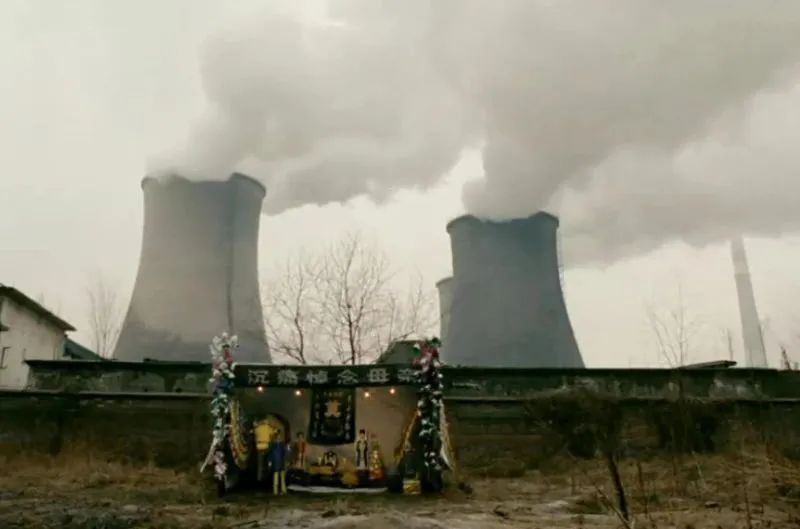
After several attempts, it was finally the day when the chimney was going to be blown up. With the explosion, two big chimneys collapsed, and the images of onlookers disappeared in the rising smoke, thus turning the youth of workers into the past.
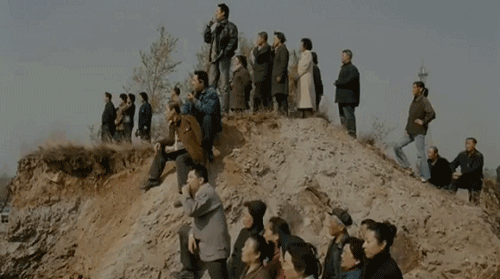
When the chimney fell, Chen Guilin’s father died, and the workmates wore black armbands to pay homage not only to his father, but also to the passing of an era when the piano was finished.
The film reflects the shock of the whole northeast society in the economic system reform with the plight of a single family.
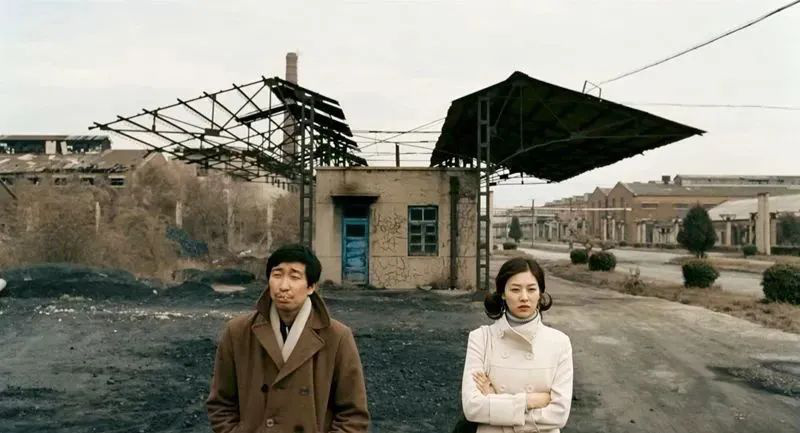
In detail, this classic wide-angle lens is also commendable. Under the symmetrical composition, there are obvious differences between the streetscapes on the two sides: on the side of Chen Guilin, the roof is broken and the residue is everywhere, while on the side of Xiao Ju, there are neat roads and houses, and the environment explains the difference of their living conditions.
The picture of "Piano of Steel" is simple, clean and rich, and it also has a sense of nostalgia.
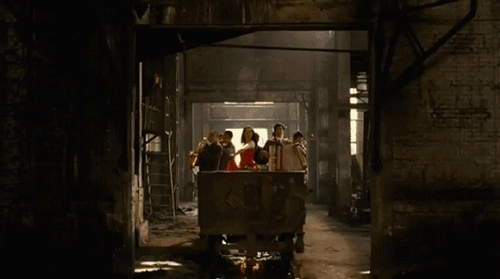
This stems from the director’s insistence on filming with film. After several twists and turns in the filming of the whole film, the director started "Piano of Steel" with pieced together money, which was almost aborted due to lack of funds, and finally Amanda, the leading actor, made a generous contribution.
Although the cumulative box office of this film is only over 6.5 million, its word-of-mouth is almost one-sided. More than 370,000 people on Douban scored 8.5, and the film has participated in more than 40 film festivals and won 57 awards, becoming a "professional winner" in various film festivals at home and abroad.
At 15:56 on May 31st, come to the movie channel to relive industry and romance and see how Chen Guilin and his workmates build a steel piano!